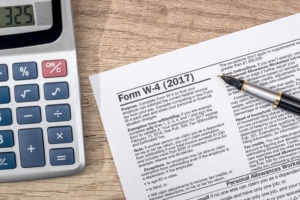by Thomas Jones
The IRS just released some helpful tools for employees to plan for 2018 taxes. Back in January, the IRS provided employers guidance for adjusting income tax withholding based on existing W-4s that employees have on file. By now, you should already be seeing slightly higher paychecks as a result in the tax decrease. But that isn’t the tax panacea for all employees.
In their news release on Wednesday, listed specific groups who should double-check their withholdings and do a “paycheck checkup.” This includes:
- Two-income families.
- People with high incomes and more complex tax returns.
- People with two or more jobs at the same time.
- People who only work for part of the year.
- People who itemized deductions in 2017.
- People with children who claim credits such as the Child Tax Credit.
“With the average refund topping $2,800, some taxpayers might prefer to have less tax withheld up front and receive more in their paychecks,” the IRS shared in the news release. A new Withholding Calculator is available to help taxpayers determine whether they should adjust their W-4 allowances. The calculator estimates how much you will owe or get back if you do not make any changes and suggests the number of allowances you should claim on Form W-4 in order to get closer to $0 owed or refunded.
Employees can submit Form W-4 to their employer to change withholding any time throughout the year. The calculator does not take into consideration a number of other factors that may complicate your tax situation., such as:
- Self-employed or run a small business
- Income or losses reported to you on K-1s
- Capital loss carryovers
- Retirement income
- Sale of employer stock or options
- Complex investments
If any of those scenarios apply to you, we recommend working with a CPA who will check-in with you throughout the year and help make tax estimates. Don’t wait until you file your taxes to find out if you owe or will receive a substantial refund.



